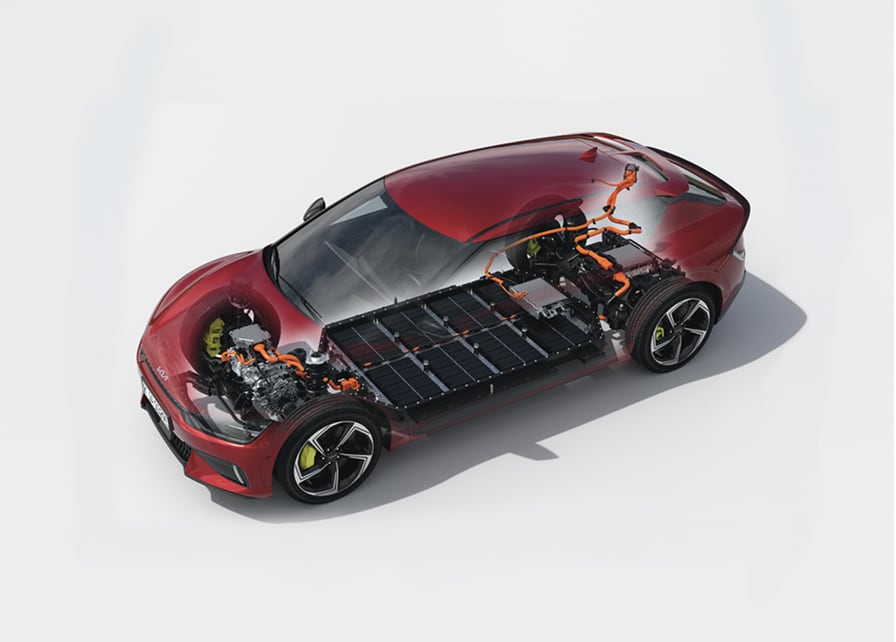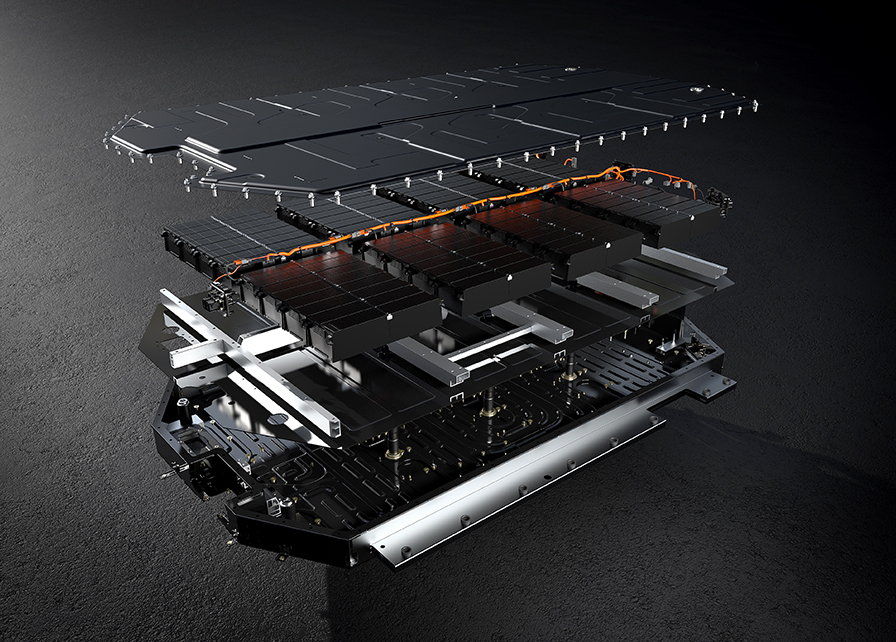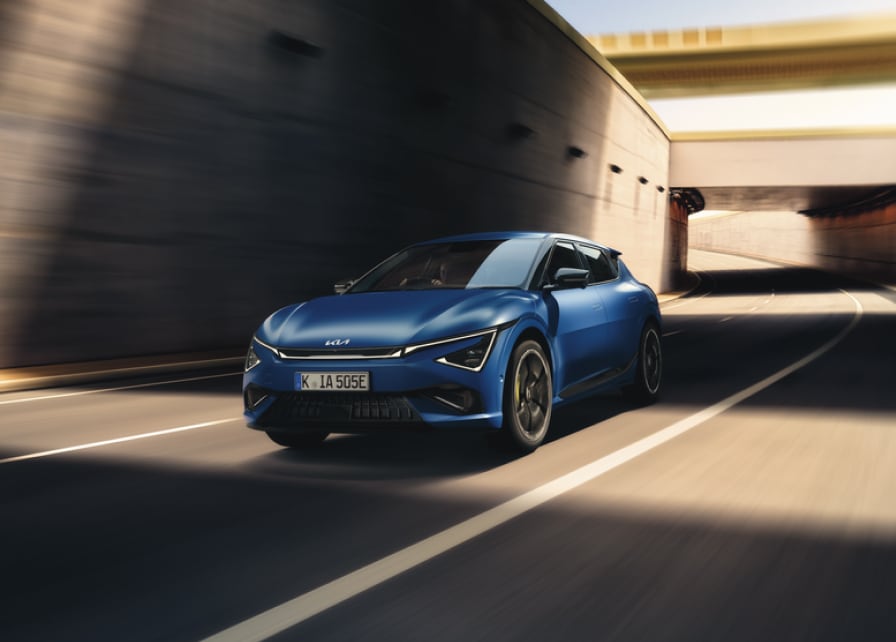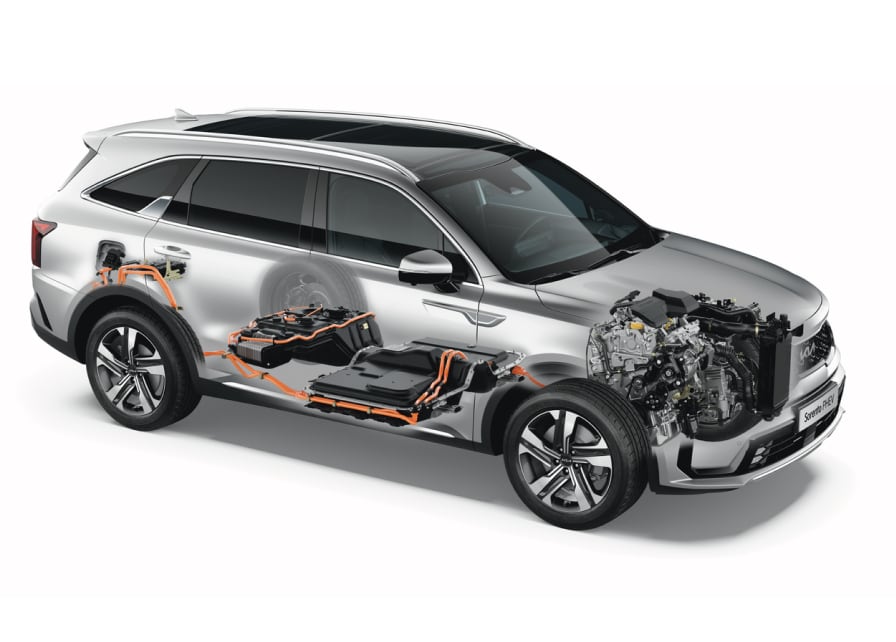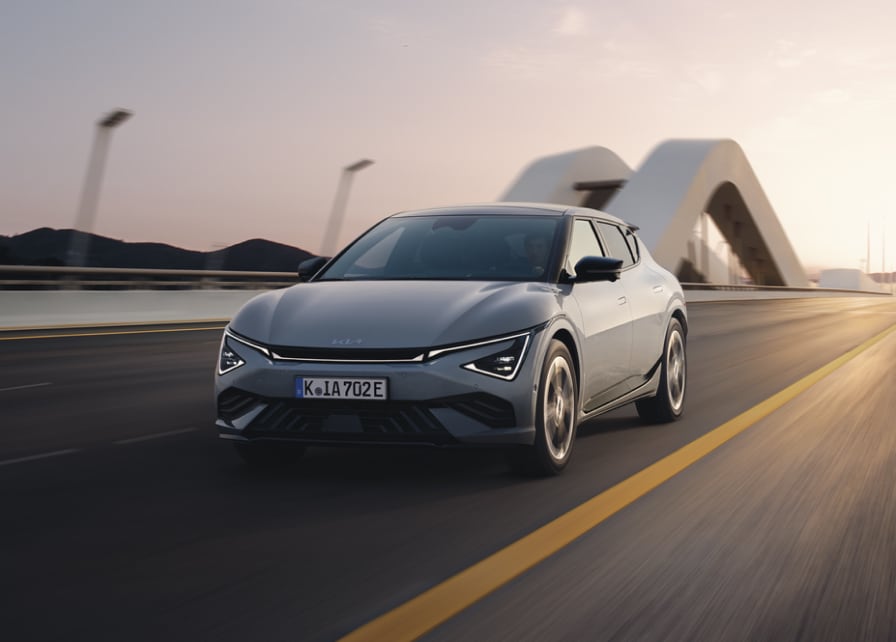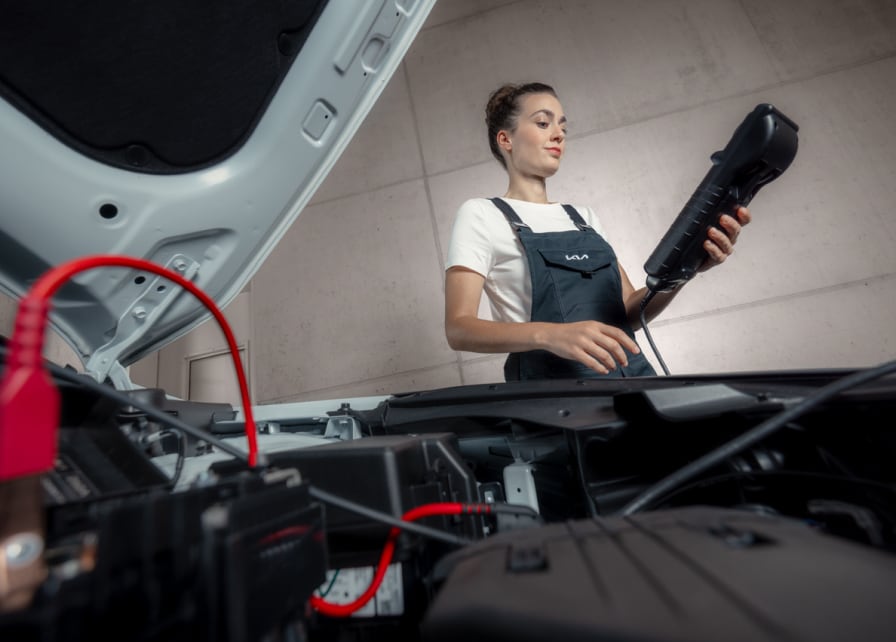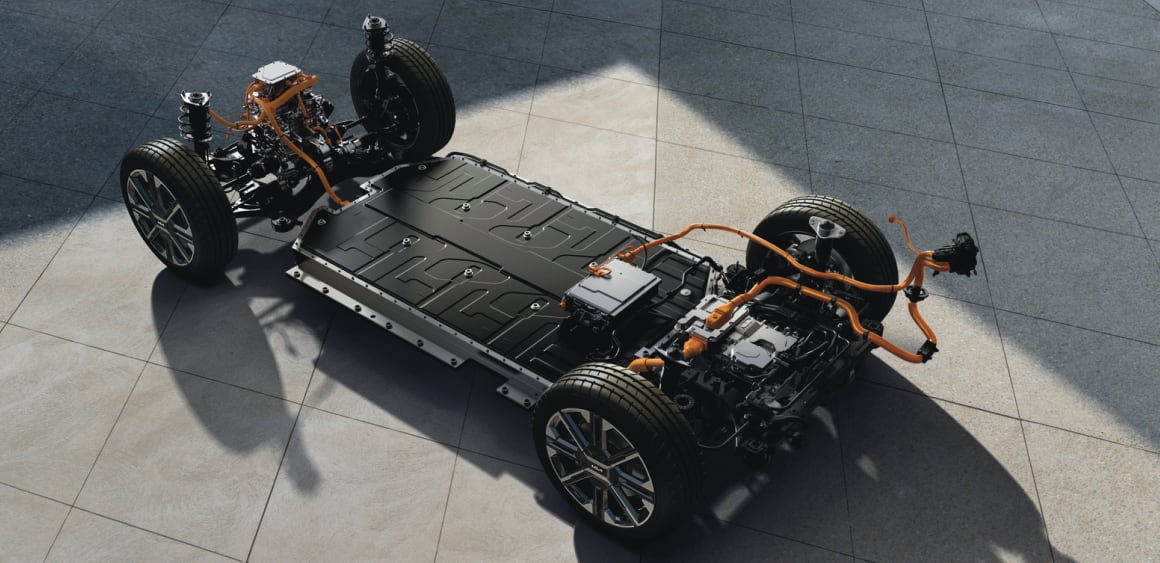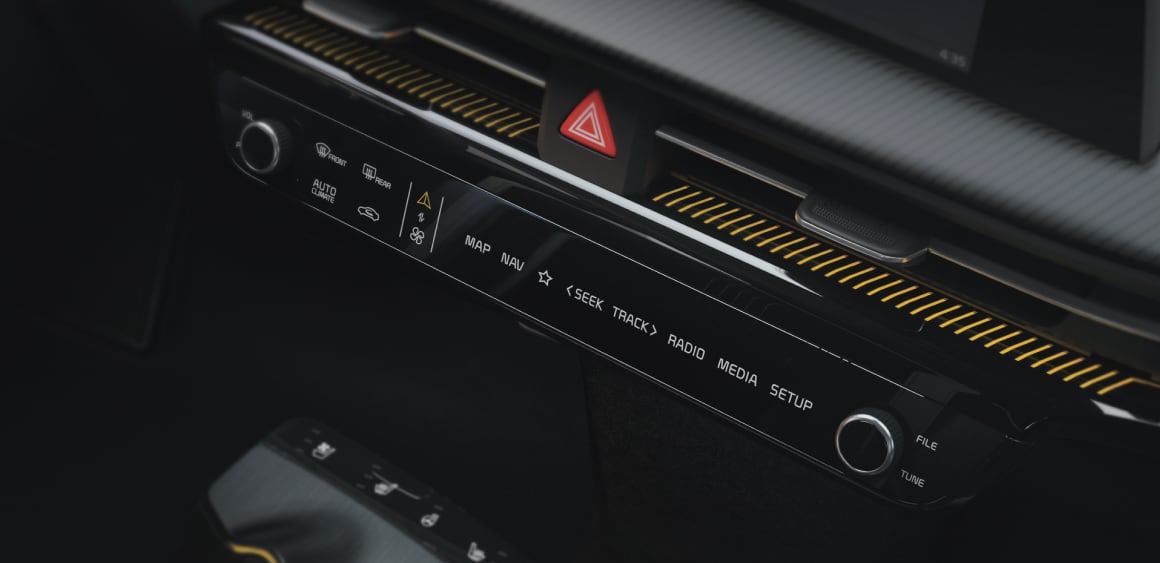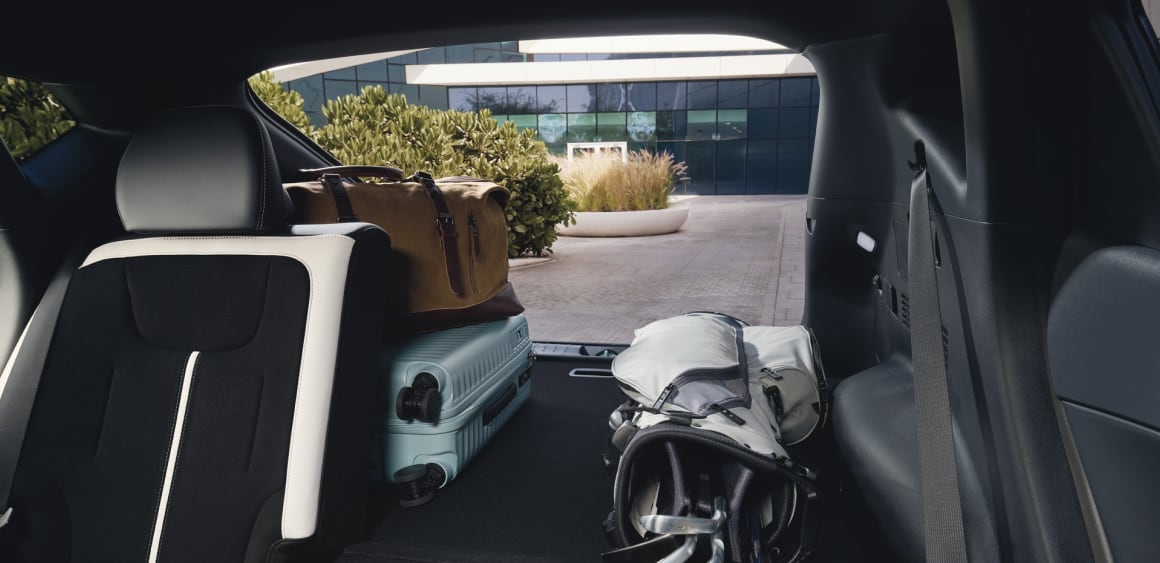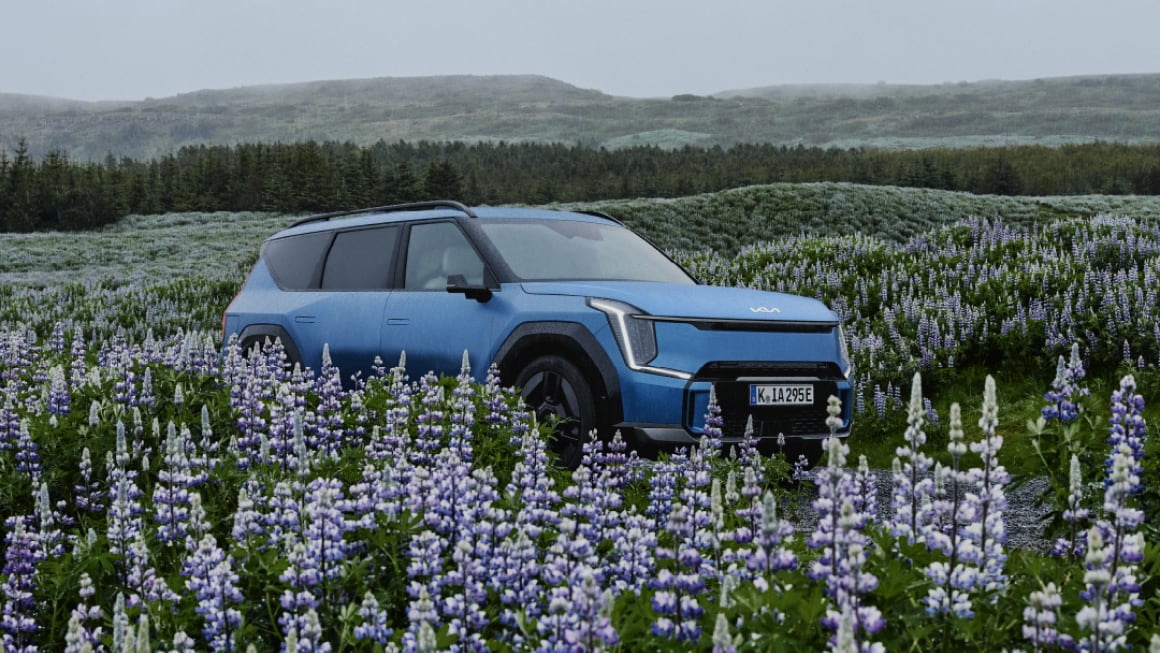ELECTRIC CAR BATTERY TECHNOLOGY

Electric car battery life and technology explained
-
Our Electric Global Modular Platform, or ‘e-GMP’, is the culmination of Kia’s research and investment in electric car battery technology. Offering reliable performance, fast charging and an 8-year warranty package as standard, everything about out batteries from the materials to the design combines to deliver world-class performance.
Kia’s advanced electric battery technology is designed to deliver long-term value and confidence for every journey. With Kia, you can expect an EV battery built to go the distance.
How do electric car batteries work?
Electric vehicle batteries are at the heart of EV innovation, designed to store energy efficiently and power your vehicle for the long haul. With advancements and breakthroughs with materials, research and design, today’s EV batteries offer reliable and sustainable driving experiences. Here’s how these batteries drive your journey forward.
-
1. What materials are electric car batteries made of?
Made of lithium-ion cells, electric car batteries are designed as durable, high-energy storage solutions. This advanced composition helps deliver EV battery life spans of several years, along with advanced energy retention.
-
2. How Does an EV Battery Generate Power?
When you accelerate, the electric vehicle battery transfers stored energy to the motor, powering the wheels directly. This process is not only highly efficient but also more environmentally friendly than the process in ICE vehicles. EV batteries also deliver instant torque and smooth performance that make electric cars unique.
-
3. Role of the Battery Management System (BMS)
To ensure optimal electric car battery life and minimise degradation, EV batteries are equipped with a Battery Management System (BMS). This advanced system regulates temperature while also monitoring the health of individual cells.
How long do electric car batteries last?
-
Electric car batteries are built to last, with most expected to deliver reliable performance for several years.
Factors like driving habits and environmental conditions can influence lifespan, but advanced engineering helps optimise durability and energy retention.
The costs of replacing an electric car battery
-
EV battery replacements are rare, as most are designed to last for several years.
Kia ensures peace of mind with its comprehensive 8-year warranty on EV batteries, offering long-term coverage and confidence for drivers.
Recycling an EV battery
Recycling electric car batteries is essential to Kia’s commitment to sustainability.
-
Recycling electric car batteries is essential to Kia’s commitment to sustainability.
Over time, electric vehicle batteries may experience gradual degradation, losing some capacity. However, they are designed to retain the majority of their charge, offering long-term reliability for drivers.
Kia’s e-GMP: The platform powering the future of electric vehicles
At the heart of Kia’s electric vehicle innovation lies the Electric-Global Modular Platform (e-GMP). Designed for versatility and efficiency, this cutting-edge platform supports longer electric car battery life by optimising energy use and enabling faster charging capabilities.
The e-GMP provides a smoother driving experience, instant acceleration, and spacious interiors, redefining what’s possible in an electric car. It’s the foundation for Kia’s commitment to building reliable, high-performing EVs that align with the needs of modern drivers.
-
Ultra-fast charging
The e-GMP is the first system in the world to allow seamless electric car battery charging at 400V or 800V without the need for extra equipment or manual adjustments. The default 800V ultra-high-speed charging requires only 18 minutes to recharge an EV6 from 10% to 80%. The system also supports the mainstream 400V charging, which uses the motor and the inverter to convert the voltage from 400V to 800V before battery storage.
-
Heat pump with waste heat recycling
Kia’s proprietary heat pump uses not only the heat from the external air but also the waste heat from electric vehicle components to heat the cabin. This capacity for recycling waste heat allows for superior levels of efficiency.
-
Efficiency and spaciousness
The e-GMP is compact, allowing for weight reduction and interior spaciousness. It is also supremely efficient thanks to innovations like the ‘hairpin winding’ technology in the motor and having inverter power modules equipped with highly efficient silicon carbide power semiconductors. The improved efficiency of our e-GMP platform maximises the range of our EVs, so you can travel farther on one charge.
-
e-AWD system
The EV6 is the first Kia to adopt our e-All-Wheel-Drive system. It allows for a seamless switch between rear-wheel and all-wheel drive modes to maximise range and guarantee the best level of grip whatever the road surface. The drivetrain offers exhilarating performance. The high-power rear and front-wheel motors are positioned lower to optimise the vehicle's weight distribution and centre of gravity. The result is a vehicle that is more stable at higher speeds and turns corners with more poise.
Your local Kia Expert
-
Looking to learn more about Kia's electric vehicles or have specific questions about EV charging options and costs? Connect with your local Kia dealer to get expert advice tailored to your needs.
FAQs
What are electric car batteries made of? What are electric car batteries made of?
Electric car batteries are made up of various metals, including 'base' metals such as iron, aluminium and copper, as well as elements like Lithium. The most common type of battery used for electric cars is a lithium-ion car battery, as they are lighter and safer than alternatives.
Electric vehicle Lithium-ion batteries are not made up of one single battery. Rather, the battery pack has around 2000 lithium-ion cells that work together to operate as a battery. How big the battery is will depend on the EV and manufacturer, but they around 30kWh or above. For instance, Kia's EVs come with a battery from 39.2kWh. The Kia EV6 has a 77.4kWh battery and a 328-mile range between charges.
How long do electric car batteries last? How long do electric car batteries last?
Modern Lithium-ion Polymer batteries are far more robust than you might think, with little deterioration occurring over the vehicle’s lifetime.
Regardless of technical considerations, Kia’s EV battery packs are covered by our 8-year, 100,000-mile warranty. This warranty covers repairs needed to return the battery capacity to at least 70% of the original battery capacity. If battery components cannot be repaired, the battery itself will be replaced with a remanufactured or new Lithium-Ion Polymer Battery.
Are Hybrid car batteries different to electric car batteries? Are Hybrid car batteries different to electric car batteries?
Because Hybrid cars are powered by both a battery and a combustion engine, hybrid car batteries are much smaller than electric car batteries. They also have a shorter electric range, as hybrids do not provide electric-only driving. Hybrid car batteries also have much smaller power-to-energy ratios compared to electric car batteries.
Hybrid car batteries charge via regenerative braking. This means they can recharge on the go while you are decelerating or travelling downhill, so there's no need to plug your vehicle in to charge.
If you're looking to benefit from a more efficient and sustainable driving experience, without the hassle of plug-in charging, Hybrid cars may be an ideal option for you.
Are EV batteries recyclable? Are EV batteries recyclable?
You can indeed recycle an electric car battery. Kia works with Autogreen Ltd to recover and recycle EV batteries. You can also find your nearest car battery disposal facility via our partner, Recycle More.
Are EV batteries recyclable? Are EV batteries recyclable?
You can indeed recycle an electric car battery. Kia works with Autogreen Ltd to recover and recycle EV batteries. You can also find your nearest car battery disposal facility via our partner, Recycle More.
How do you dispose of EV batteries? How do you dispose of EV batteries?
Kia applies Design for Recycling (DIR) guidelines, working with multiple partners to recycle as much of your EV car battery as possible. With Autogreen Ltd, we utilise several certified authorised treatment facilities (ATFs), making it easy for us to recover, treat and recycle not just EV batteries but also the rest of your end-of-life vehicle.
Discover more
-
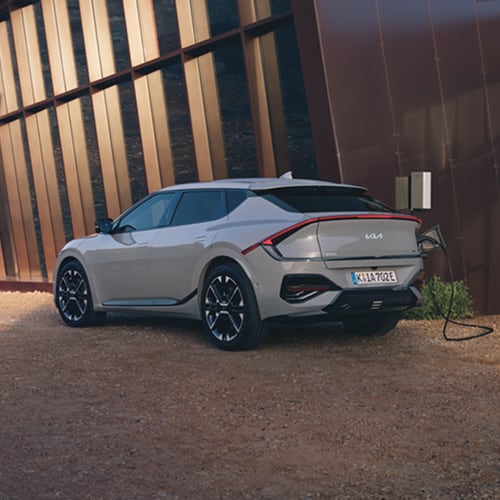
Home charging
Read more about home charging
Discover cost-efficient and sustainable ways to power your Kia electric vehicle at home.
-
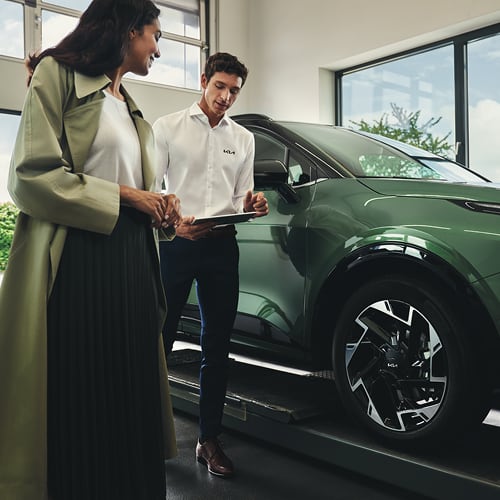
Cost of ownership
Explore Cost of Ownership
Learn how owning a Kia EV saves you money in the long run with reduced running costs.
-
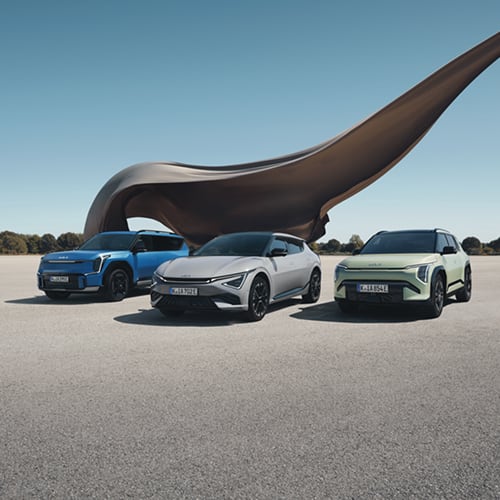
View the EV range
Discover the EV Range
Explore Kia’s full range of electric vehicles, designed for innovation and sustainability.


